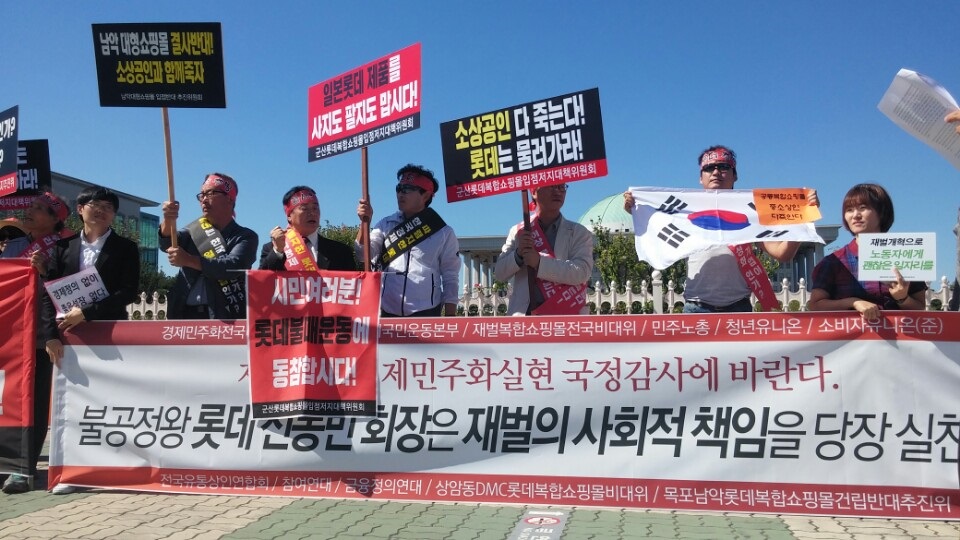The Peninsula
The Growth of Anti-corporate Sentiment in Korea
Published March 9, 2017
Category: South Korea

By Jaeho Jeon
More and more Koreans are saying that they don’t trust Korean companies. The anti-corporate sentiment has existed in the past, but it is spreading more rapidly after the ‘Choi Soon-sil scandal.’
According to a survey by Edelman, a communications marketing firm, last month only 29 percent of Koreans said they trust corporations. This is the lowest figure, down 4 percentage points from 2016, among the 28 countries surveyed. And only 24 percent of the respondents said they trust corporate CEOs. Not only is the credibility of companies low, but the credibility of the government is suffering a similar decline. As a result, Edelman has classified Korea as a ‘distrusting country.’
If the anti-corporate sentiment spreads among Koreans, it could limit the scope of movement for corporations. Additionally, if the public opinion of corporations is bad, it is highly likely that politicians who are conscious of the voters will initiate anti-corporate laws. Recently, the opposition party submitted legislation to revise the Commercial Act and limit the largest shareholder’s voting rights to 3 percent when electing a member of the Audit Committee, and to require cumulative voting in election of new board members.
Opposition parties have argued that Commercial Act revision is necessary to protect the rights of minority shareholders and to reform the corporate governance structure, but companies have expressed frustration that it will be difficult to defend control of a company if the bill passes. Although the Commercial Act revision did not pass the National Assembly, many people supported the revision despite the appeal of companies. This shows that the distrust of companies is prevalent.
Why is anti-corporate sentiment so prevalent in Korea? Many people think that they have been betrayed by companies, especially chaebol. When everything became ashes after the Korean War, the government fully supported companies in order to spur economic growth. The government forced banks to lend money to corporations at cheap rates, and eased regulations.
Both the government and the general public believed that building successful companies was a sound way to create jobs and develop the economy, and thanks to this support, big companies like Samsung and Hyundai grew and thrived.
The belief that fostering corporations is beneficial to the country and its people has been accepted as a fact for decades, but as the 2000s began the belief faltered. According to Professor Jang Ha-sung at Korea University, the cumulative GDP growth rate from 1990 to 1997 was 70.7%, which was not much different from the cumulative growth rate of household income of 63.2%.
However, since 1997, the gap has begun to widen. The cumulative GDP growth rate from 1997 to 2015 was 104.4%, but the cumulative increase in household income was only 68.4%. In particular, while corporate income is steadily increasing in gross national income, the proportion of household income is steadily decreasing. In the past, corporate income has led to domestic investment, which has led to household income. But as corporations are reluctant to invest, the income circulation is not achieved.
As a result, Koreans no longer believe that a company’s success will also allow them to live well. Rather, they believe that companies enjoy all kinds of prerogatives and take care of themselves. When corporate CEOs have committed illegal acts, the Justice Department has not sought strong punishments. The Choi Soon-sil scandal reinforced this belief.
To mitigate anti-corporate sentiment, corporate CEOs should demonstrate their willingness to change. Boldly cutting the link with political circles by strengthening the functions of the board and ending the hunt in political circles for preferential treatment are needed. Companies can regain people’s trust, but only if act and behave differently.
Jaeho Jeon is a reporter at ChosunBiz and a visiting fellow at the Korea Economic Institute of America. The views expressed here are the author’s alone.
Photo from 참여연대By: 참여연대’s photostream on flickr Creative Commons.
